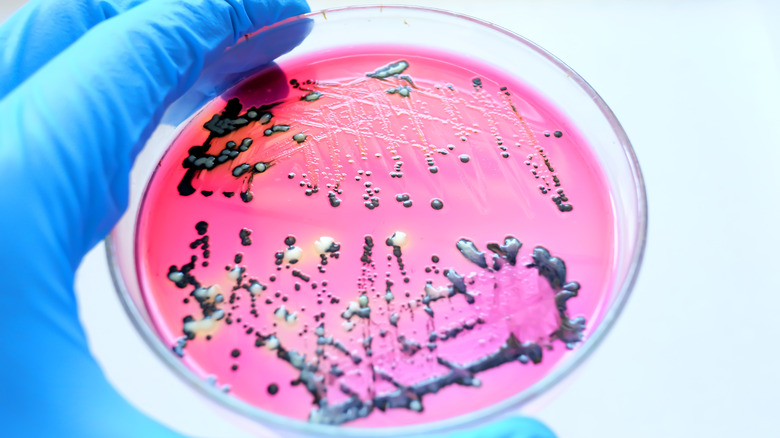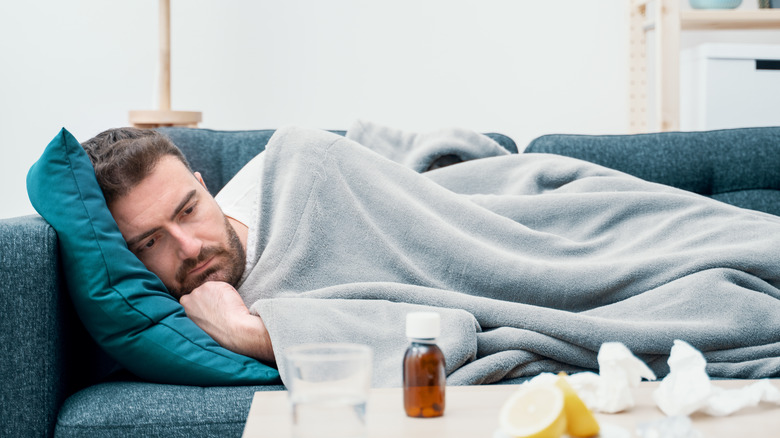The Best Way To Treat Salmonella
Imagine yourself waking up one morning and not feeling so great. You have a fever, your stomach is twisted in knots, and trips to the bathroom are becoming more and more frequent. As you wonder what could possibly be the cause, your mind flashes back to that slightly pink chicken thigh you ate at a friend's house the evening before. Suddenly, you realize you may have contracted a salmonella infection.
According to experts at the Mayo Clinic, we as a species are often subjected to salmonella bacteria through contaminated water and food. Consuming undercooked meats, poultry, and raw eggs are the most common way to become infected. You might be one of the lucky people who experience zero symptoms post-infection, but vomiting, fever, and chills are all noticeable signs that you may be a victim of contaminated food.
According to the Centers for Disease Control and Prevention (CDC), salmonella can be diagnosed through laboratory testing of stool, body tissue, or fluids. One of the main symptoms experienced after contracting this specific type of bacteria is diarrhea. While many people recover without having to seek any treatment, there are a variety of factors that should be considered when deciding if you should do more than just wait it out on the couch.
Seek medical treatment if you suspect you are dehydrated
According to Verywell Health, there are a few things you can do at home before contacting a medical professional. Stick with eating mild foods that are easy to digest. Avoid dehydration by regularly consuming sports drinks and water. Use a heating pad on your stomach to help relieve uncomfortable cramps and consider taking over-the-counter painkillers or an antidiarrheal medicine to ease discomfort. Experts suggest that if you experience diarrhea that is so severe it causes dehydration, then it is important to contact a medical professional as soon as possible. Signs of extreme dehydration include dizziness, confusion, extreme fatigue, excessive thirst, and darker than normal urine.
The Mayo Clinic notes that symptoms connected to salmonella can last between seven and ten days.
While salmonella is a relatively common infection, take care of yourself by staying hydrated and resting through the worst of the symptoms. And if your chicken is noticeably pink the next time you're eating at your friend's house, don't take the chance and throw that bird back in the oven.


